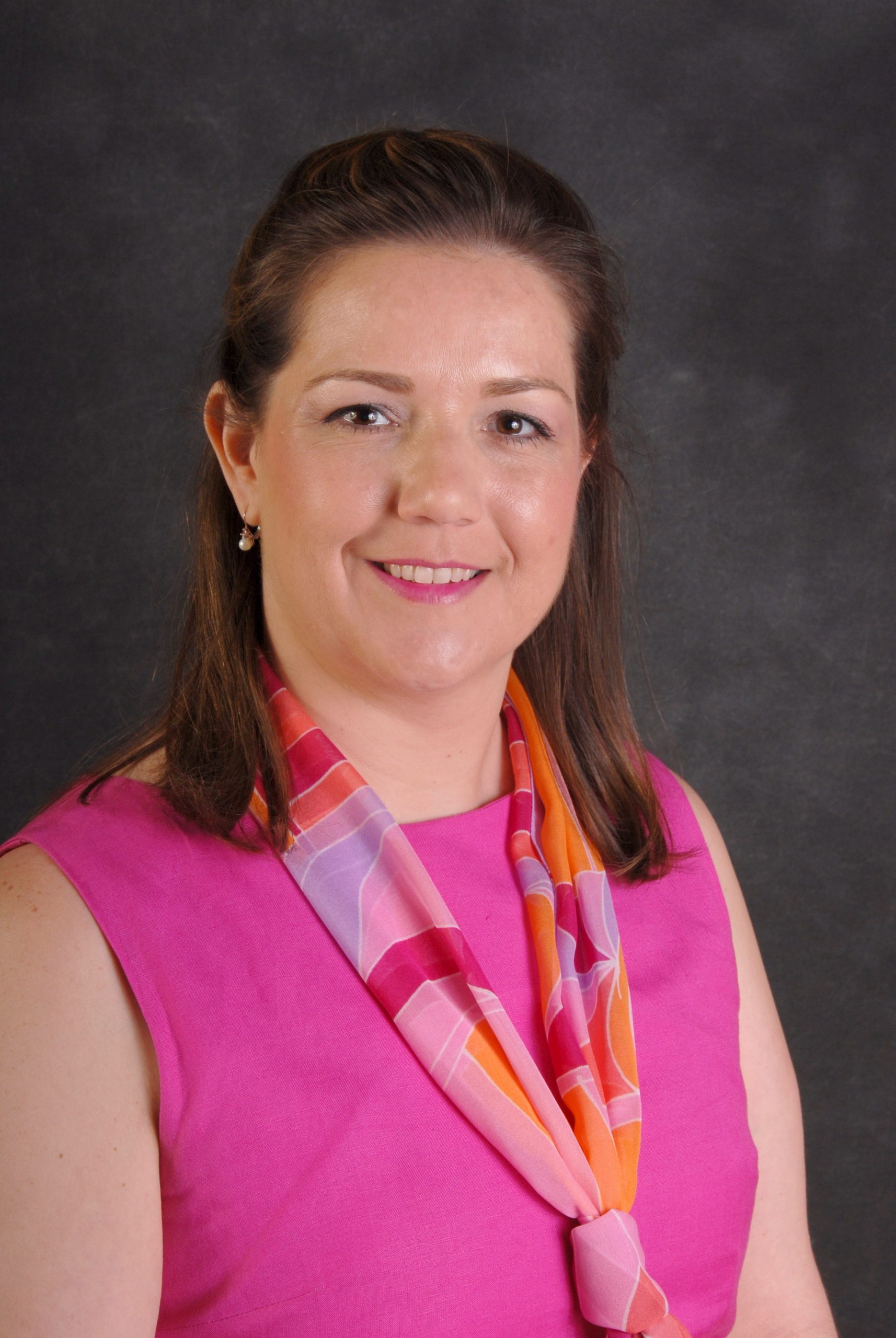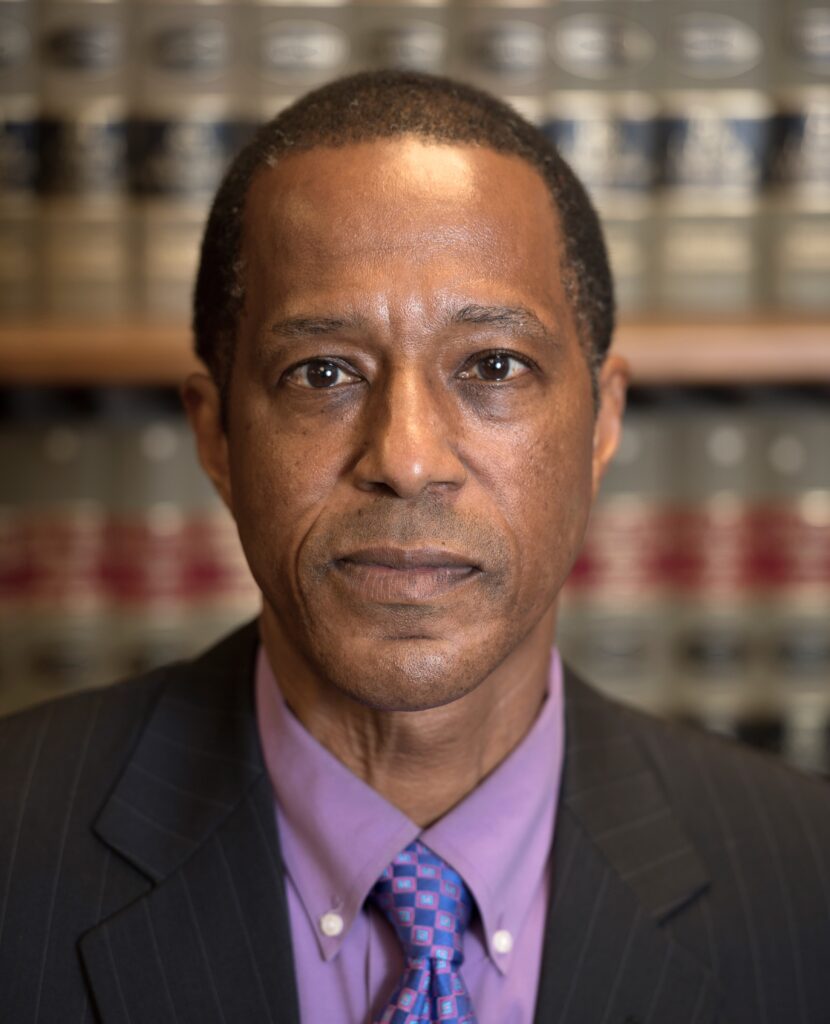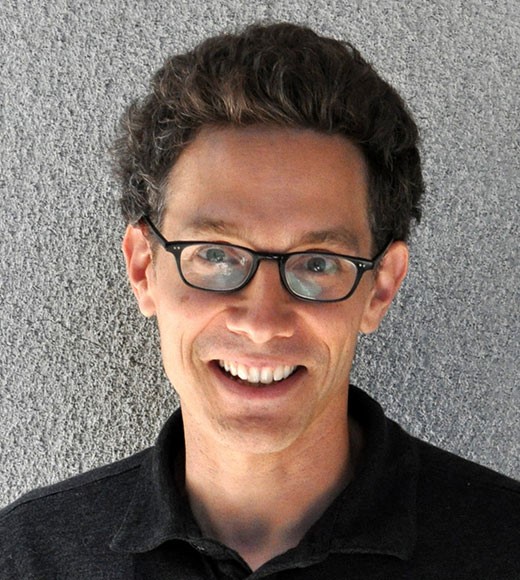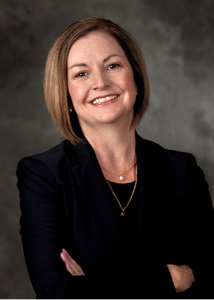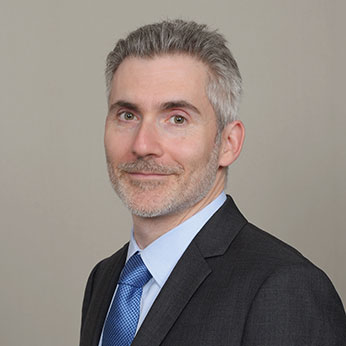Faculty Perspectives is an ongoing series in which AALS presents opinions from law faculty on a variety of issues important to legal education and the legal profession. Opinions expressed here are not necessarily the opinions of the Association of American Law Schools. Faculty interested in contributing a piece for the series can contact [email protected].
This Faculty Perspectives article was adapted from the 2024 AALS Annual Meeting Arc of Career session “The Experiential Sabbatical: How a Semester in Practice Can Reignite Your Career and Inspire Your Students.” The session was organized and moderated by Katherine Vukadin (South Texas College of Law Houston). A recording of the full session, along with materials including templates to assist with sabbatical proposals, is available online.
Katherine Vukadin
In law school, we teach theory. But most of our students will go into practice, and they need our help and advice when they are informing their professional identity. We may earnestly explain to a student how practicing as a lawyer will be, but later stop to wonder if what we said was true. Is our advice still valid? Our students complete internships and pro bono work, and we may wish we could do something similar, or take a temporary step back into practice. The experiential sabbatical can be an opportunity for all of these experiences.
Kathleen Burch
Atlanta’s John Marshall Law School
Professor Burch is currently on sabbatical serving as an Assistant Attorney General for the Republic of Palau. During her previous sabbatical, she was Chief Legal Counsel to the Fourth Constitutional Convention of the Federated States of Micronesia.
I’ve had the pleasure to have two sabbaticals. The first one happened completely out of the blue: a friend and former colleague invited me to apply to be the Chief Legal Counsel to the Federated States of Micronesia Constitutional Convention. After a quick conversation with my dean, I was on a plane within two weeks heading out to Pohnpei. We started the Constitutional Convention but had to recess because of the COVID-19 pandemic.
hat work continued and, in the meantime, I had reconnected with the Attorney General in Palau, who said they were trying to hire attorneys. I reached out to everyone I knew who was doing recruitment, but no one took the bait. Finally I said “What about me?” [My current] sabbatical was about eight months in the planning.
My advice as you think about a sabbatical is: First, why do you want to do it? For me, the Constitutional Convention was a once-in-a-lifetime experience. The second one had more to do with what was going on at the time—needing and wanting a break.
Knowing I would be gone for two years, I considered what I needed and how I could negotiate with my dean. For example, I have a college-aged child for whom I wanted to have state-side health care. I couldn’t take a sabbatical and not have any relationship with my institution for this period of time. I negotiated a partial leave of absence, which I could do because we were still virtual [because of Covid-19]. The associate dean worked with me on scheduling—evening in the Eastern time zone is morning in Palau—and I taught one seminar each semester that fit within the parameters of what I usually teach.
What do I do for the Republic of Palau? I’m Assistant Attorney General. I run their civil litigation. One thing that surprised me, even though I had practiced in Micronesia before, is how my expertise in constitutional law and civil procedure intersect. Maybe most people, even in practice, don’t understand how to use civil procedure. Interesting procedural questions came up, and I had to help educate the court. People were doing it the wrong way, or were asking the court for something that was usurping the court’s discretionary function—all within the context of constitutional questions.
Some of the things I teach in con law that I never thought people would really have to practice include, for example, political question doctrine. I have two cases pending that both deal with political question doctrine. In one, people are challenging the President’s decision to allow the US military to build radar systems in Angaur. For those of you who would like to know that you’re very secure: Palau is the border of US national security, to the extent that anything’s going to be targeted by North Korea or China. This radar system will be our protection.
The second case uses the political question doctrine as a defense, saying the court has no authority to interpret the provisions of the Constitution or determine what Congress can consider regarding qualifications for seating a Senator. In the US, those are well-settled doctrines. I had never given thought as to how my students might come across these doctrines in practice. Because the courts now use Zoom so much, they allowed [John Marshall’s] IT department to connect to the courtroom and broadcast the oral argument to my students. The students listened to the argument, and in the next class we talked about how both sides presented the legal issues. They critiqued both attorneys and I asked them for feedback on my performance as well. It built credibility with the students.
For the Constitutional Convention, I did a lot of things that I didn’t think I would do. I thought I would be giving advice on constitutional issues. “How does the language need to be redrafted to accomplish the kind of amendment the Delegate wanted to accomplish?” [In reality], I did employment law, all kinds of things supporting the administrative Secretariat office, and educated the constitutional officers. We discovered that the Constitutional Convention’s implementing legislation was incomplete, so we had to go back and ask Congress to amend some sections. We actually have a case still in litigation, where I’m trying to convince the court that because the Convention has recessed sine die, it no longer can be sued. I became involved in the public education process, as well.
With regard to scholarship—being cognizant of the ethical obligations with regard to what I can disclose—I’m in the midst of writing an article about the Constitutional Convention called “So You Want to Hold a Constitutional Convention?” It will step back and focus more on practice. If you’re involved in a convention or a call to a convention, what does that mean? I’m not writing about how [this experience has] come into my classroom, because I think it’s more important to write about the substantive issue of the immunities available in the ROP. There’s very little scholarship in these jurisdictions, and the cases I’ve worked on over the last 18 months have developed the doctrines of sovereign immunity, absolute immunity, and qualified immunity—which the court has not really grappled with.
If you are interested in a sabbatical on a tropical island with great diving, the Attorney General is interested in talking with you. Attorney General, Ernestine Rengiil, can be contacted at [email protected].
Bobby Harges
Loyola University New Orleans College of Law
Professor Harges spent his first semester-long sabbatical working as an Assistant District Attorney at the Jefferson Parish District Attorney’s office in the metropolitan New Orleans area.
When I started my legal career at the University of Mississippi School of Law, my teaching package was Torts, ADR, and Insurance Law. I chose those topics because I had experience with those topics. I didn’t ever see myself changing. Two years after I started, I got a call from a friend of mine who was Dean at Loyola University. He said they had a position available. I could keep teaching some of my courses, but I also had to teach Criminal Law. I said I know nothing about Criminal Law, but that course was part of the package. I took the job without ever practicing criminal law.
My wife was a state court prosecutor in New Orleans, so anytime I had a question about something, I could ask her about it. I read a lot of criminal law books, treatises, and articles to get up to speed. Something was still missing: experience and knowledge in the area were lacking. One of my colleagues suggested an experiential sabbatical, which we called a practice sabbatical at that time. She said, “People in the drama department are directing plays during their sabbaticals. Someone joined a band; someone joined a choir. You ought to try it.” I had been teaching criminal law for seven years without ever practicing it, so I decided to do a one semester sabbatical in the DA’s office.
To get started, I contacted a Loyola graduate who worked at one of the local DA’s offices. There was no existing program for professors to come in. In my letter to him, I asked him if I could volunteer my services as an ADA for four months. He told me to come on in.
I worked in all departments. I interviewed police officers, witnesses, and victims. I was embedded in the Investigations Bureau because they always have one or two attorneys there in the event that legal issues arise. One common thing I realized is that police officers start with very little probable cause. We had to scrutinize their applications for warrants before they could submit the warrant to a judge. The investigating officer would come to me with a warrant application. And I would ask, “what other evidence do you have?” He would say, “that’s it.” I would say, “there is no probable cause. We need more evidence.” He would say, “What do you mean? This is it.” So, then I would have to send the officers back for more evidence to establish probable cause.
On a day-to-day basis, I watched things. I worked from 8:30 am to 5 pm—later, when I had trials. I was just one of the guys. I told ADAs if they needed a hand, they could call on me. I worked in every section, and with all the judges. I tried eight felony cases. I was in appeals. I wrote briefs. I responded to writs. I watched bench trials, I watched jury trials. Just being in that environment opened up an area that has enhanced everything I do.
I saw how the courthouse, the District Attorney’s Office, and the police department all worked, which was critical for my learning at Loyola. When I finished law school, I had no interest in criminal law. I realized one reason was that my professor didn’t have criminal law experience. For the first four or five years [of my own teaching], I really brought nothing to the class except the case book. I was reading from someone else’s notes and teaching from someone else’s cases. After the sabbatical, my teaching changed. I was a much better professor. The classes were much more enjoyable to me and to the students, because I had learned things during the sabbatical. I had war stories to tell—I still tell [them].
I’ve now gone on to teach and write on criminal procedure, DWI law, and evidence issues. I’ve written a DWI book, a criminal law book, and numerous articles on the topics. The sabbatical enabled me to open another area and enhance my teaching. At Loyola, we can take a one-semester sabbatical for full pay or a one-year sabbatical for two-thirds of our pay. I’ve done both—this first sabbatical over four months, then I later took another sabbatical for a full year. I would recommend that for those who have that opportunity.
[My first sabbatical] was in 2000. Since that time, it has paid dividends to me many, many times. I’m actually a criminal defender now. I practice with my wife, who was the First Assistant District Attorney for Orleans Parish and is now a criminal defense lawyer. I would’ve never practiced criminal law had I not been in the DA’s office. Whenever my wife doesn’t have a second attorney at trial, I will try the case with her. DAs never try cases just with one lawyer. They always have a second or third, an investigator, and a bunch of law students there for assistance—you might need someone to go outside and see if your witnesses are there. The most recent case I tried was in October. So, the experience of a sabbatical has really helped me inside and outside the classroom.Ezra Ross
University of California, Irvine School of Law
Professor Ross spent his sabbatical working with Community Legal Aid SoCal in Orange County, CA.
The truth is that I did not do a sabbatical primarily to benefit my students, or to write scholarship, or even to help the underserved communities that I went to work for. My main motivation was my own insecurities. I hadn’t practiced law for years. Day to day, I was going into class—I teach lawyering skills—and my own skills were decaying. A sabbatical was a way to rehabilitate my professional image in my own eyes. I was afraid that I would struggle with the work, or be a bit useless, or be overwhelmed by it. I lead with these (arguably cringe-worthy) admissions because I want to validate that you don’t have to come at this experience from a purely virtuous place. You can come at it from a place of [wanting to] shake things up.
For my sabbatical, I wanted to work at a public interest organization and do some of the things I was teaching in my class. My big takeaway from this part of the process was that you don’t have to make things up from scratch. Law schools often have an existing infrastructure—generally built around student pro bono, but you can plug into it. Our law school pro bono coordinator gave me contacts at different organizations, and I eventually made a connection with Orange County Legal Aid. They were excited and willing to tailor an experience to my priorities. We created a three-part sabbatical experience.
The main part was interviewing with Orange County Legal Aid’s Homelessness Prevention Group. Each week we would go to homeless encampments in Santa Ana, set up a table, and take all comers. It was in many ways a trial by fire, especially for an old corporate litigator who was used to having a lot of time to get everything just-so. We did not have that luxury. You never knew what was coming to the table—benefits administration, a will contest, landlord/tenant, or an out-of-state warrant. We ran the gamut. And we didn’t have the luxury to reflect all that much because if we reflected too long, we might never see the person again. We’d be racing, on the spot, to come up with a solution. We were online doing Google searches and using forms we brought from the office.
This part of the experience was intimidating. The fear I mentioned earlier was in full bloom, but there was also a team spirit. It was gratifying to get to hear out members of the homeless population who probably hadn’t been listened to before on these issues.
The second part was legal research and writing. Some writing projects spun off from the interviews with the homeless population, like writing a letter in a landlord/tenant action. Others came from attorneys in the office who knew I was looking for writing projects. For example, an attorney came to me for some help punching up an opposition brief. There was variation in the writing similar to what I teach in my class.
The third part of the sabbatical was mentoring with Orange County Legal Aid’s new attorney incubator program. We had a weekly case rounds process where senior staff attorneys and retired attorneys and judges from the community would give feedback to new attorneys to help them think through problems with their cases. My role was to be part of confronting these dilemmas and to model good ways of hashing out legal problems.
One [impact of my sabbatical] is basic but important: the power of showing up. Just being in the office at Legal Aid had a magic to it. I would run into former students and there was a new recognition and credibility there. Likewise, attorneys I’d never met before were excited that there was a professor in the office rolling up his sleeves, getting his hands dirty with them.
Another impact was that this experience reminded me that, for example, torts issues don’t neatly isolate from contracts issues, or from probate issues. They interweave organically. In many classes, we focus on a single doctrinal area as if it doesn’t connect with other areas. After this experience, I wanted to replicate that messiness in my lawyering skills class. For example, I created a new torts assignment with a constitutional law issue wedged in. Students had to extricate the issues from each other. It was a struggle for them, but I think it was more realistic than what I was doing before.
Doing this experience gave me the confidence to jump into [new] experiences. For example, I agreed to supervise a team of students in our appellate litigation clinic in a Ninth Circuit appeal. I also supervised the interviewing program at UCI, where all 1Ls work with a public interest organization to interview a client of the organization. And I worked to keep up my pro bono practice [with Legal Aid] after the sabbatical ended.
The last major impact was unplanned: this experience gave me ideas for scholarship that were not in my area. For example, faculty professional identity. What am I? I’m doing some law practice, but I’m also an academic. Or am I a teacher? Or am I something in between? This led to writing projects about ways that faculty pro bono can potentially play a role in faculty professional identity. Even some of the work I’m doing now has been indirectly influenced by the sabbatical. [My experience with] those interviews and worrying about never seeing [a particular] client again—that makes it hard to be client-centered. That has fed into my current work on client-centeredness and amorality and legal education.
Katherine Vukadin
South Texas College of Law Houston
Professor Vukadin spent her one-semester sabbatical interning for one month each with a state trial court, federal district court, and the Fifth Circuit Court of Appeals.
I got the idea for my experiential sabbatical in my car, which happens a lot in Houston. I was listening to an interview with a dot-com company founder who was saying that to be really creative, you should be away from your normal environment. I thought, “that’s what I want to do—go completely away somewhere!” Then I remembered I have dogs, kids, a house. Well, perhaps not. But could I put myself somewhere else? I teach legal writing and Texas civil procedure; what would be more interesting than a court?
My first step was casually chatting with my dean and associate dean to determine whether this was something they would entertain. It was, so I put together a proposal and a bibliography of articles about experiential sabbaticals. We’re a practical law school, so my dean and associate dean liked the idea of getting more in touch with practice. Right then and there, my dean called two judges. Two more judges who had connections with the law school also said that they would [participate].
It was up to me to figure out how it would work, so I met with each judge to explain what I wanted to do: be a helpful fly on the wall, and bring back any lessons they wanted to tell law students. I set up a month in the State Trial Court, a month with the District Court, and a month with the Fifth Circuit Court of Appeals. I gave myself a week off between the first and second month, and two weeks between the second and third month. That gave me time to process and to write anything that I wanted to write—I resolved to keep an informal journal as I went along to capture all the new information.
Once I had it set up, [the insecurity] kicked in. How is this going to work? Am I going to be able to help? Am I going to be of any use? I’m going to try.
I had never focused on the workload of state trial judges—and it’s not only true of Texas. It’s many states. At the State Trial Court, Judge Schaffer has 2,500 pending cases. There’s nobody else with a law degree helping him. Mondays and Fridays, he’s deciding 30 pending motions. Imagine having to read a motion, a response, a reply, figure out the law, and figure out if somebody’s misrepresenting for 30 different cases. And that’s in addition to his trials, hearings, temporary restraining orders that might come up, an opioid multidistrict litigation that he has. It’s a fire hose.
My next stop was the Federal District Court with Judge Hanks. Here there were two clerks: a term clerk and a career clerk. Not only is there more help, but there is a lower volume of cases, so there’s more time to focus on each case. I was sitting in on sentencing hearings for both civil and criminal cases. He showed me a lot of federal research about different sentences, and I developed an interest in restitution. I’m now working with a judge on an article about it, particularly with regard to juveniles.
My last stop was the Fifth Circuit Court of Appeals. On my first day, I flew to New Orleans with the court for oral arguments. Though it was somewhat of a fish out of water experience, it was one of the days I’ve learned the most in my life—being with the clerks, talking about the cases, listening to oral arguments, and hearing what everybody thought about it back in chambers. Back in Houston, I appointed myself proofreader. When a clerk had written something, I offered to proofread and talked to them about their writing. I hadn’t considered what it would be like to work alongside the Fifth Circuit clerks—terrific people and outstanding writers who shared what helped them with legal writing at their law schools. I want to be able to teach people how to write like that.
As for the benefits to the law school and to me: first, I was able to nuance my view of writing for different courts. I also heard a lot of direct comments. The judges would tell me, “It’s ridiculous how much somebody has written that they didn’t need to. Please tell them not to do that.” I didn’t come in thinking about the importance of civility, but the judges listened to so much bickering. Lawyers would rather talk about how bad the other side than talk about the issues. I also took a lot of life lessons from the judges, who were very interesting people.
Reading briefs and motions for months, I saw techniques that I didn’t know about. It also vastly expanded my network. I met people who will now welcome my students into court to observe or to mentor them, and people to collaborate with on presentations and articles. An opportunity came up to teach Texas civil procedure. It wasn’t a previous interest of mine, but having sat there for a month with Schaffer, I thought it was interesting and that I could add experiential value. I want students to be in the courtroom. Last semester, I made it a priority to take students on field trips to the courts. They absolutely loved it—all I had to do was take them down there and show them what’s going on. They want to feel like lawyers, to see for themselves.
Martin Pritikin
Purdue Global Law School
Dean Pritikin spent a semester-long sabbatical with the Trial Attorney Partnership for civil litigators at the Orange County District Attorney’s office, where he spent time in the juvenile and criminal departments.
When I first got a full-time teaching position, I was told, “We have good news and bad news. The good news is we want to give you a spot. The bad news is we want you to teach wills and trusts and criminal law.” I had no experience with either of those things. All my litigation experience was civil. But I wanted to be in academia, and beggars can’t be choosers.
Criminal law became one of my bread-and-butter courses, and I taught it for years. As my seventh year approached, I’d been teaching criminal law, had written law review articles about criminal law, and had coached our mock trial teams to present criminal cases, but I’d never tried a criminal case myself. For my sabbatical, I wanted to volunteer at the DA’s office and get criminal trial experience. The dean and the sabbatical committee first told me I couldn’t. Why? Because I had to come up with an article. So I volunteered at the DA’s office– and then wrote an article about how my experience there helped my teaching, my scholarship, and my service.
I was fortunate that there was already a program in place, which I knew about because our students and graduates had done it. The local DA’s office had a Trial Attorney Partnership program, where civil litigators who don’t get a lot of criminal trial experience can volunteer for a couple of months. They set it up so I could see as much as possible: I spent a month in the juvenile department and a month in the regular criminal department.
My experience was eye-opening and dramatically improved my teaching, scholarship, and service in many ways. In terms of service, I was also the associate dean for experiential learning at the time. I made tons of contacts for speakers to bring in—criminal defense lawyers, DAs, judges. I made contacts for people to be adjunct mock trial coaches. I made connections for student jobs in the DA’s office, at externships, or jobs with defenders. If all I had done was write an article, it might’ve helped me. But how much would it translate to students getting the professional opportunities they want?
In terms of scholarship, it gave me ideas that I never would’ve thought of because I hadn’t personally encountered these issues or read about them in casebooks or law review articles. I didn’t know they were there to write about. In terms of teaching, to this day I use simulations in my courses that I learned from that sabbatical. I also designed the trial advocacy class at my current law school.
One of my biggest insights was putting myself in my students’ shoes. By that point, I’d been teaching criminal law for seven years. I didn’t have to prep for a class. I knew the cases I was going to discuss and where I wanted the Socratic discussion to flow. I was kind of on autopilot. The students would have a hard time grasping it. They would have to hear it again and again. I wondered why they weren’t getting it. When I was the novice, my brain was on overload. Everything was new and unfamiliar. You have to hear things multiple times before it sinks in. [The experience of being a novice] might have been one of the most invaluable lessons of all.
I’ll put my dean hat on now. What is your institution like, and will this work for you? We know that in many traditional law schools, there is a bright line between doctrinal and skills. Those barriers have been breaking down somewhat in recent years—definitely a good thing—but at many law schools, [practicing law is] still not “what a doctrinal professor does.” I think it’s all about how you pitch it.
When I wrote my article “The Experiential Sabbatical,” I surveyed associate deans and asked two questions: does your school allow experiential sabbatical, and have professors done this? Of those that responded, only one in four said they knew their schools would allow something like this. The others were split between knowing they wouldn’t, or having no idea. Of those who said they knew it was possible, only 10 percent said they were aware of faculty actually having done an experiential sabbatical.
In my view, an experiential sabbatical should be the norm—at least as common as a purely research-driven sabbatical. If you’re fortunate enough to be at an institution that embraces this, it won’t take any selling. Otherwise my recommendation is—as we often know with lawyers—it’s about trying to fit facts into doctrinal boxes. You want to show how the facts meet the elements. Your university or law school probably wants to know how your sabbatical will promote your professional development in terms of teaching, scholarship, and service.
One idea: empirically-driven legal scholarship is bigger now than it was 10 or 15 years ago. You might say you want to either do qualitative research, or get an idea or a basis to start quantitative research. Think about the ways you can fit this into your institution’s box. With a little creativity and thought, you’d be hard-pressed to think of an experiential sabbatical that wouldn’t be valuable to professional development.

